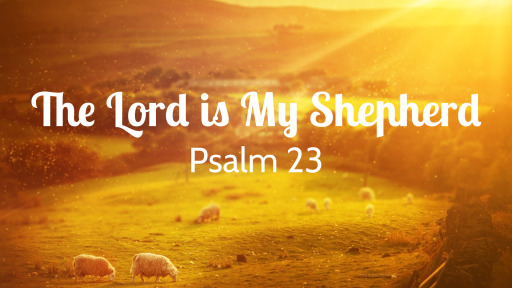The Lord is My Shepherd

I. We must understand the image of the shepherd (vv. 1-4)
The sheep are not taken to a rushing stream, but to still, calm lagoons. Flocks in the ancient Near East were watered at least once a day, usually around noon; but this leading was not limited to finding water to drink. It included finding a place for cleansing and refreshment. Here the placid waters could wash the wounds and cleanse the soiled spots.
“The hill country of Judah is broken up by narrow and precipitous ravines, or wadis, difficult to descend and ascend, dark, gloomy, and abounding in caves, the abode of wild beasts and robbers.” Here it is likely that the psalmist had a number of such gorges in mind from his time in the wilderness, but he was using the idea of such a “valley” as an image for life-threatening experiences, or difficult places
II. We must understand the image of the gracious host (v. 5)
According to customs, the honored guest was safe because the host was obliged to protect a guest at all costs. Sitting down to eat and drink in the midst of danger from enemies is a marvelous picture of safety and security
It was the duty and delight of the gracious host to give the guest scented, perfumed oil to freshen up (especially after being in the sun and sand; modern skin lotions may be similarly refreshing).
III. We must understand the image of God, the One who pursues us (v. 6)
It is God who will pursue him and extend his loyal love to him every step of the way. He will not let David out of his faithful loving care. Why does this love “pursue” him? Was he trying to escape? (cf. Psalm 139:7). No matter where he went, or why, David knew that God would follow him with his love. He had been pursued often in his life; but no man chased him as persistently and effectively as the LORD.
